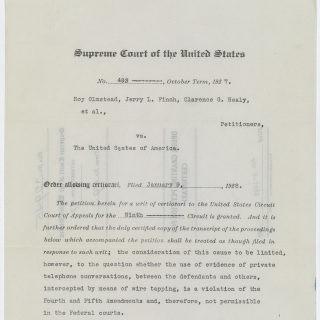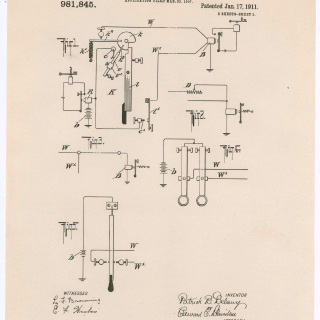Government to “Play an Ignoble Part” 1928
By wiretapping the phones of bootlegger Roy Olmstead, Federal Prohibition officers collected incriminating evidence and arrested him. Olmstead appealed his case, claiming that the use of wiretapping violated the Fourth Amendment prohibition of “unreasonable searches and seizures.”
In a 5-4 decision, the Supreme Court upheld the legality of wiretapping in Olmstead v. United States. Writing for the majority, Chief Justice William Howard Taft stated, “There was no searching. There was no seizure. The evidence was secured by the use of the sense of hearing, and that only.” Other justices, however, believed wiretapping violated an individual’s privacy. Oliver Wendell Holmes, Jr., claimed he would rather see criminals escape than allow the government to “play an ignoble part.”


